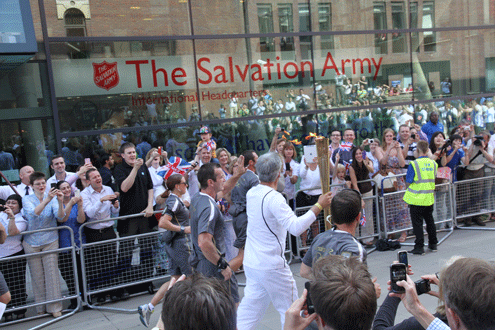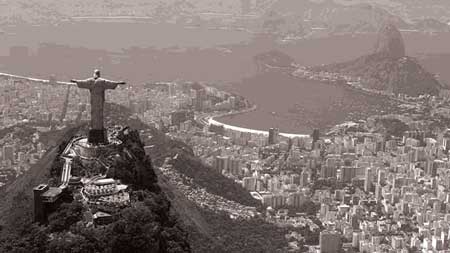Reunification
On July 1, 1997, after 156 years of British administration, Hong Kong was reunited with mainland China. Currently, The Salvation Army’s work in Hong Kong includes 19 corps, 76 social service centers, and 13 schools. Junior and Senior soldiers number more than 2000 and there are 50 officers.
According to an interview at International Headquarters with Major Tan Thean Seng, who served as general secretary in Hong Kong for six years, Hong Kong’s alignment with China will not inhibit the Army’s existing work in that area. “There will be no change in Salvation Army structure in Hong Kong. We are recognized by both the government and the public, and can continue our religious and social work.” The work of the Army in China will remain under the jurisdiction of the Hong Kong command.
The changes, in fact, will actually make access to China easier. While there are at present no opportunities for Salvation Army evangelism, such as open air meetings or church services, and starting churches is not permitted, Army community assistance projects provide plenty of ‘presence evangelism.’
“People see our witness by our work. It’s Christianity in action. We are open about being an international organization that is motivated by Christian charity.”
Reports indicate there is a resurgence of religious faith in China, with churches being well-attended. Many are coming to the Lord, though the government is cautious in admitting that.
The Army has been involved in health and community development projects, educational training, child sponsorship and disaster relief projects. An office has recently been set up in Kunming, Yunan Province, to coordinate the operation in China.
“Instead of being fearful of restrictions, we are looking on the positive side,” says Tan, who is the undersecretary for the South Pacific and East Asia Territory. “China is now open for The Salvation Army to do more work. As the opportunities arise, the Army will rise to the occasion.”
Commissioner Fred Ruth, who has served in the West as secretary for program, has recently been appointed International Secretary for the South Pacific and East Asia.
Western officers Majors Barry and Arlene Dooley serve in Hong Kong, and Lt. Colonel Check Yee, (R), O.F., recently returned from working in China.
It was the Founder’s dream that work should begin in China. Commissioner G.S. Railton was sent to look over the situation in 1908; but it was not until 1915 that a small party of officers was sent from London to raise the flag in China. A few months later, they were joined by officers from many lands who had been studying the language and preparing themselves for this new challenge.The zeal of the missionaries helped the work spread through the towns and villages of North China, but there was much to be learned apart from the language. Side by side with the evangelical work, The Salvation Army began doing relief work among people who otherwise would have starved to death.
In times of internal fighting, beginning in 1927, the foreign officers began leaving the work to the Chinese officers, who by 1936 were giving bright hope for the future.
The Japanese invasion, of course, changed everything, so that the work was curtailed. Eventually the Salvationists joined the long lines of refugees heading for Free China in the southwest. In South China all the officers were interned except for two heroic British women officers who kept the Girls’ Home open in Hong Kong.
A change of government after the war closed all Salvation Army operations in mainland China.












